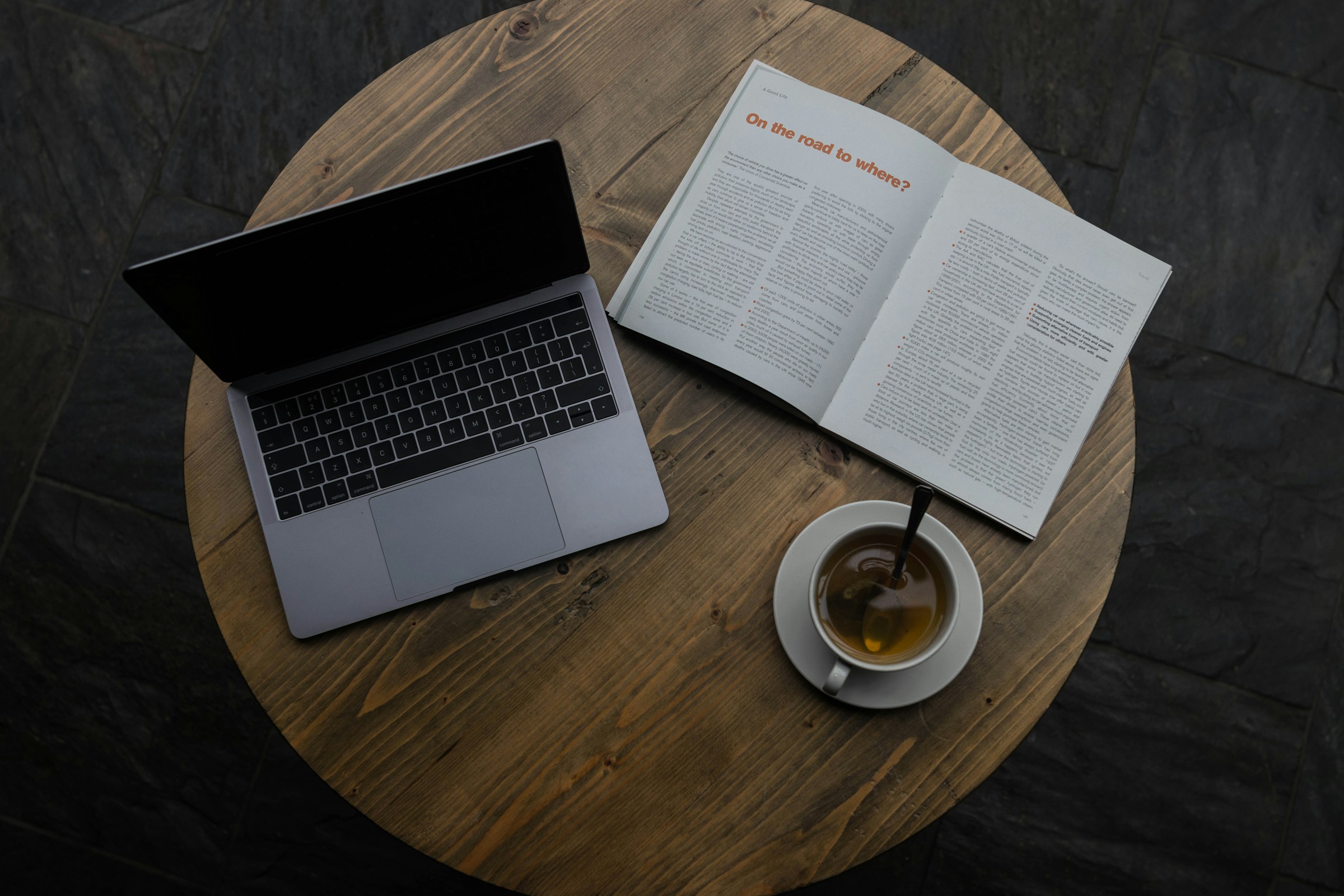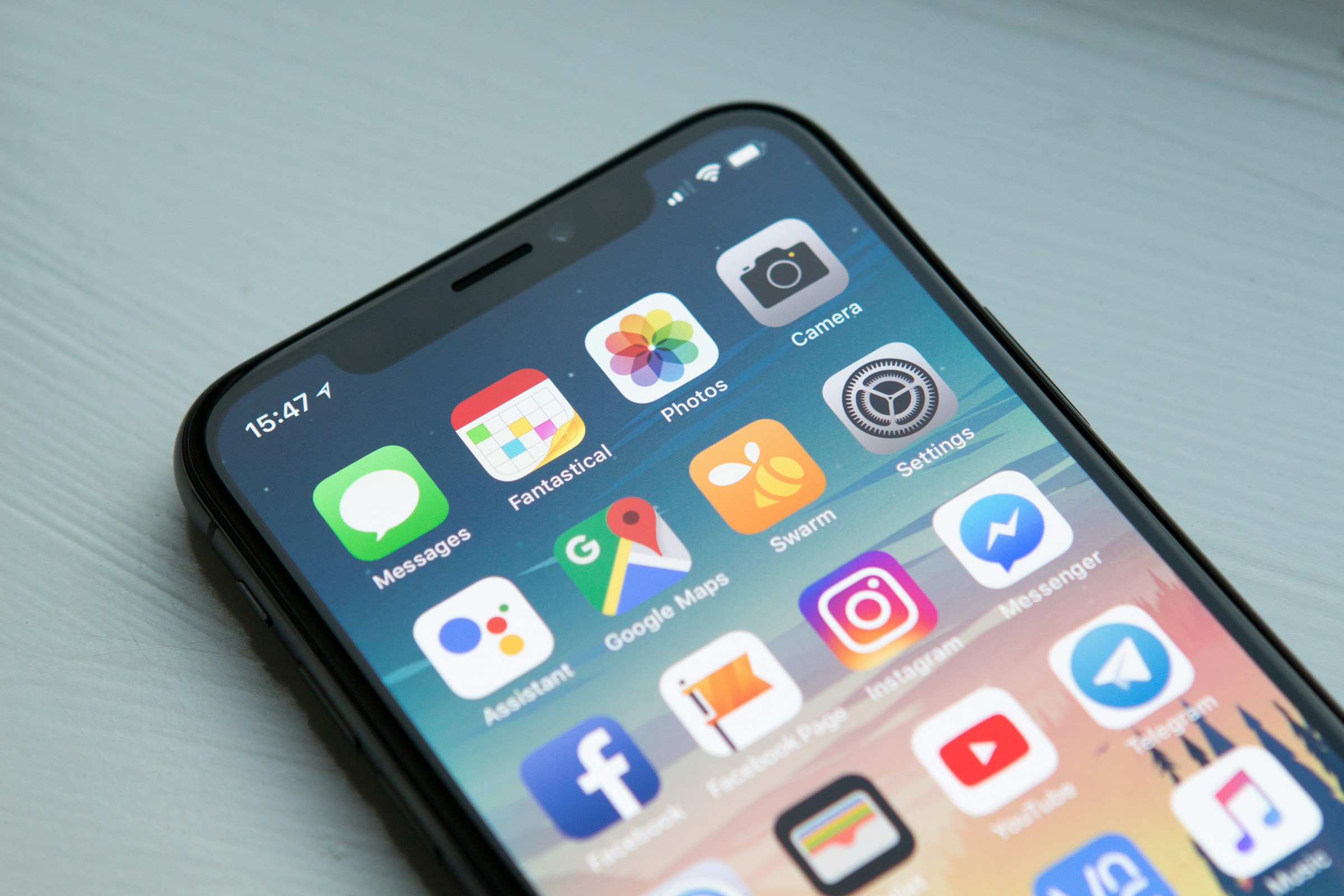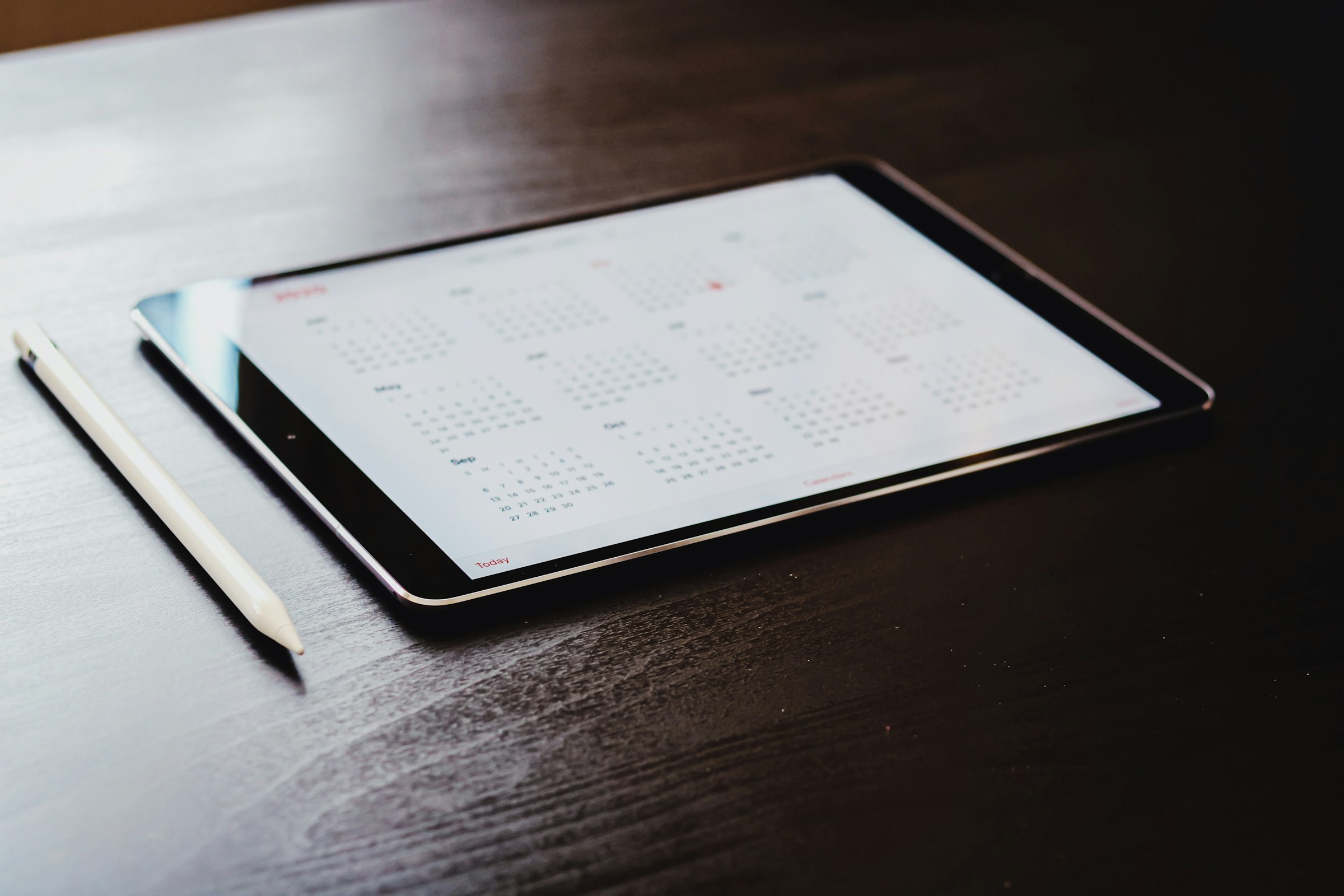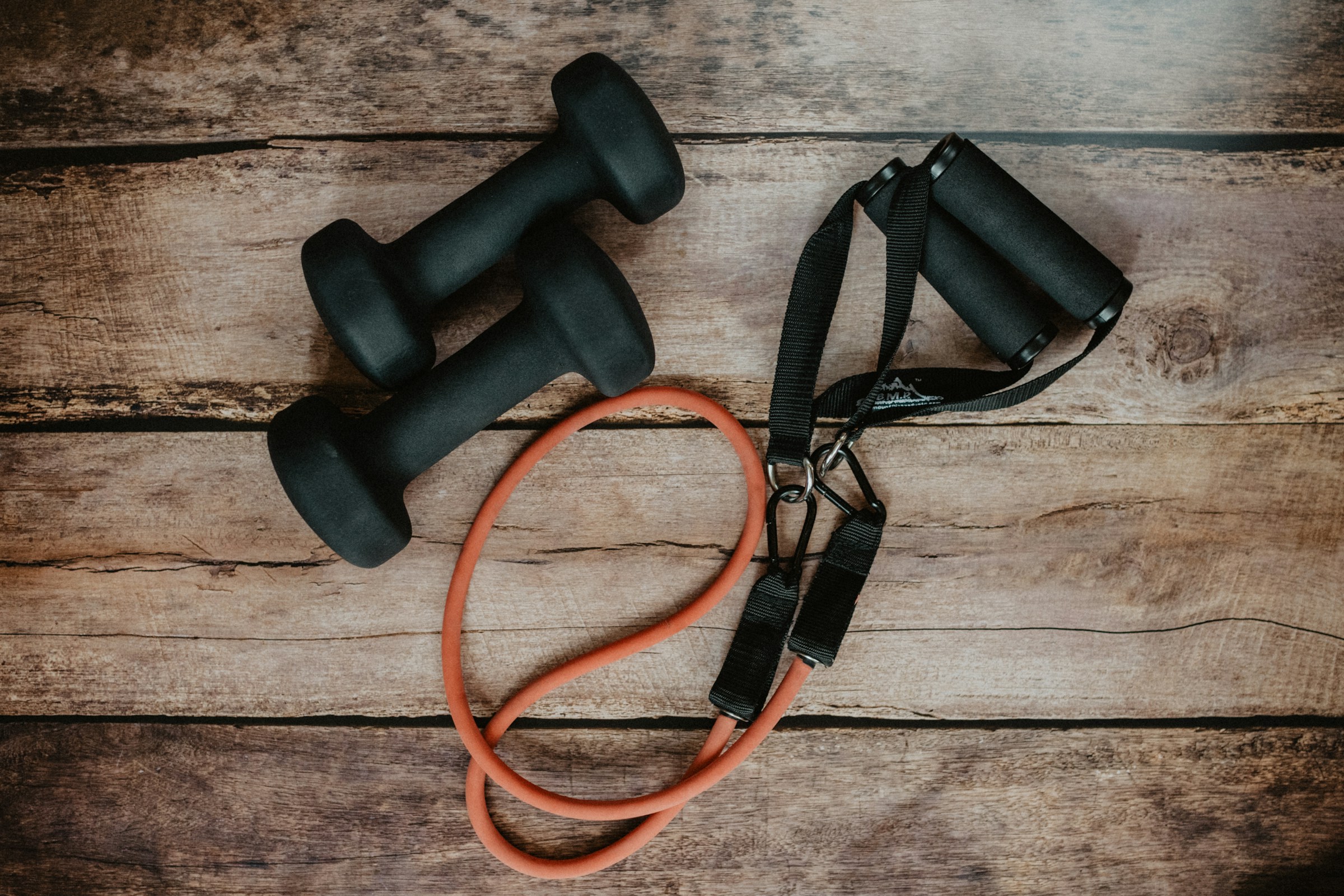What is focus?
The Merriam-Webster dictionary defines focus as “a point of concentration” or “directed attention.” We’re focused when our mind is concentrating on a specific task or person, blocking out distractions.
When we’re focused at work or while traveling, we’re prioritizing something specific, trying to complete it as quickly but efficiently as possible. You might focus your attention on answering emails for 15 minutes by wearing noise-canceling headphones to reduce distractions.
Why we struggle to concentrate
Concentration and focus are interlinked. We can’t do one without the other. If you’re unable to concentrate, you won’t be able to focus. Concentration is when we direct our focus on a particular task or person. Many people struggle with their concentration at work—and it’s not because you’re bored or uninterested.

Photo by Luca Bravo on Unsplash
Identifying why you struggle to concentrate can help you improve your focus by addressing the root cause.
You might struggle to concentrate because of:
- Sleep deprivation: A good night’s sleep and a healthy sleep schedule is crucial to concentration. If you’re not getting enough sleep, you’re more likely to be stressed, easily frustrated, and distracted. These factors can contribute to a lower attention span and make it harder to focus.
- Stress: Research has shown an increase in work-related stress, particularly among younger generations. If you’re stressed, you’re more likely to lose focus, become confused, and struggle with workplace relationships. Developing ways to reduce your stress can improve your concentration and focus.
- Multitasking: Multitasking is often necessary to get through the day, but when you’re doing more than one thing, you’re splitting your focus. While this might be easy okay for small tasks, you’ll want to avoid multitasking when working on something that requires your full attention.
- Poor diet and nutrition: You should think of food as energy for your brain. When we start to feel hungry, we naturally become distracted until we provide our bodies with food. Skipping breakfast or being deficient in certain vitamins can negatively impact cognitive function and concentration.
Understanding why you can’t concentrate can help you change your routine to improve your focus at work.
9 ways to focus better at work
We can all do practical things to help us focus better at work. Whether you’re in the office or working in an airport lounge, there are steps you can take to improve your focus. Everyone’s ability to concentrate is different. It largely depends on your stress levels, how easily distracted you are, and your workflow.

Photo by Callum Shaw on Unsplash
Learning how to focus better on work is a win-win. Your clients will be satisfied, you’ll be more productive, and your stress levels are likely to be reduced. We’re sharing 9 easy ways to improve your focus that you can incorporate into your daily routine.
1. Turn on your phone’s “do not disturb” setting
Your phone is likely the reason why you can’t focus. Every time your phone beeps or a notification pops up, you’ll probably break your concentration to look at it. Emails, text messages, and social media notifications are all distractions that can negatively impact your productivity.
Instead of muting your phone, set it to “do not disturb”. This setting means the notifications won’t appear on your home screen, allowing you to fully focus on your task. You can set the “do not disturb” mode to auto-set during certain hours of the day.
2. Log out of social media apps while at work
How often do you take a break from work to check social media? It’s easy to start scrolling and lose track of the time. If you’re working at a computer, you might have Facebook or Twitter open on your screen alongside your work.

Photo by William Hook on Unsplash
Mute the notifications on your social media accounts and avoid having social media apps on your work devices unless necessary. Keep your social media scrolling for your lunch break, or practice mindfulness with a podcast or walk to reduce stress.
3. Try remote working to boost productivity
Since the pandemic, there’s been a rise in remote working. It’s a common misconception that most people work better at an office. The problem with offices is that they often come with distractions you wouldn’t have at home. 80% of employees in a recent survey said they were more focused when working remotely.
If you have a specific task to complete and need to avoid distractions, try working remotely.
You can improve your focus while working from home by having a designated space, away from distractions and other people. Build your daily routine around your workflow, including assigning large tasks for when you’re more productive.
4. Time blocking for hyper-focus
Dividing your workday into time blocks can help you manage your workload and improve your focus. If you have a deadline or a task to prioritize, you can create a time block to focus solely on this activity. Organizing your day into time blocks can help you feel less overwhelmed and create a more productive workflow.

Photo by Omar Al-Ghosson on Unsplash
Time blocking allows for hyperfocus and is ideal for difficult tasks requiring your full concentration. Prioritize larger time blocks for when you’re most productive, either first thing in the workday or the early afternoon.
5. Use noise-canceling headphones in the office
If you’re becoming easily distracted in your office and can’t work remotely, then it’s time to invest in noise-canceling headphones. They’ll help reduce distractions and make it easier to concentrate on your work.
If you often travel for work, noise-canceling headphones or earplugs are ideal for working on the go.
It’s one practical step you can take to improve your focus and become more productive at work, whether you’re in the office or working remotely.
6. Write a to-do list every day
When we feel overwhelmed or out of control, we struggle to focus. Writing a daily to-do list is one of the best ways to improve your focus and will help you time block your calendar.
It’s a good idea to have a weekly or monthly to-do list to pull from when creating your daily to-do list. It’ll help you stay ahead of deadlines and avoid burnout by setting realistic expectations for your schedule. Think of your to-do list as your ultimate tool for staying focused. Having a to-do list and time blocking in line with your workflow will maximize your productivity and reduce stress.
7. Workout and exercise daily to reduce stress
Your daily lifestyle impacts your ability to focus. Working out and exercising are crucial to reducing your stress levels, practicing mindfulness, and allowing you to focus at work. When we exercise, we increase the dopamine and serotonin in our brains, helping boost creativity and focus.

Photo by Kelly Sikkema on Unsplash
Doctors recommend daily moderate exercise of at least 30 minutes. You can incorporate this into your daily routine by cycling to work, walking during your lunch break, or joining a fitness class.
8. Try meditation and practice mindfulness
Your personal well-being is important to your ability to focus at work. If you’re feeling stressed, anxious, or depressed, you’re more likely to lose focus and make mistakes.
Practicing mindfulness will support your brain’s cognitive function, improve your attention span, reduce distractions, and lower anxiety.
There are lots of ways you can practice mindfulness, including with meditation. You can meditate anywhere at any time with breathing exercises and guided practices. Other ways you can practice mindfulness include:
- Getting outdoors, including for regular walks
- Moving your body with exercises
- Focus on your breathing
- Listen to relaxing podcasts
- Disconnecting from social media
- Journaling your thoughts
9. Identify what your workflow is
We all have a natural workflow and ways that we handle tasks. You might be more productive in the morning or work better after getting smaller tasks ticked off your to-do list. Identify your workflow and build your schedule and routine around it.
It may take a little trial and error to achieve this, but it’s the secret to unlocking your maximum productivity and improving focus. Understanding your workflow can make time blocking easier.
Become more productive at work by improving your focus
Concentration and focus are the backbone of productivity. If you’re falling behind at work or dealing with work-related stress, identifying ways to improve your focus can get you back on track. Minimizing distractions, understanding your workflow, and utilizing time blocking are the best ways to be more focused at work.

Photo by Sebastian Pandelache on Unsplash
Use the 9 tips above to improve your daily routine and enhance your focus to become more productive, whether you’re at the office or on a corporate retreat.
Make corporate travel simple with Roundtrip
Make corporate travel easier than ever with Roundtrip. Our online booking platform is designed for corporate travel managers and employees alike, putting all the resources you need on one website – from airline tickets to accommodation options and transfers.
Get started with Roundtrip today to streamline your corporate travel with access to 2.5 million hotels in 220 countries and special rates on airline tickets.


